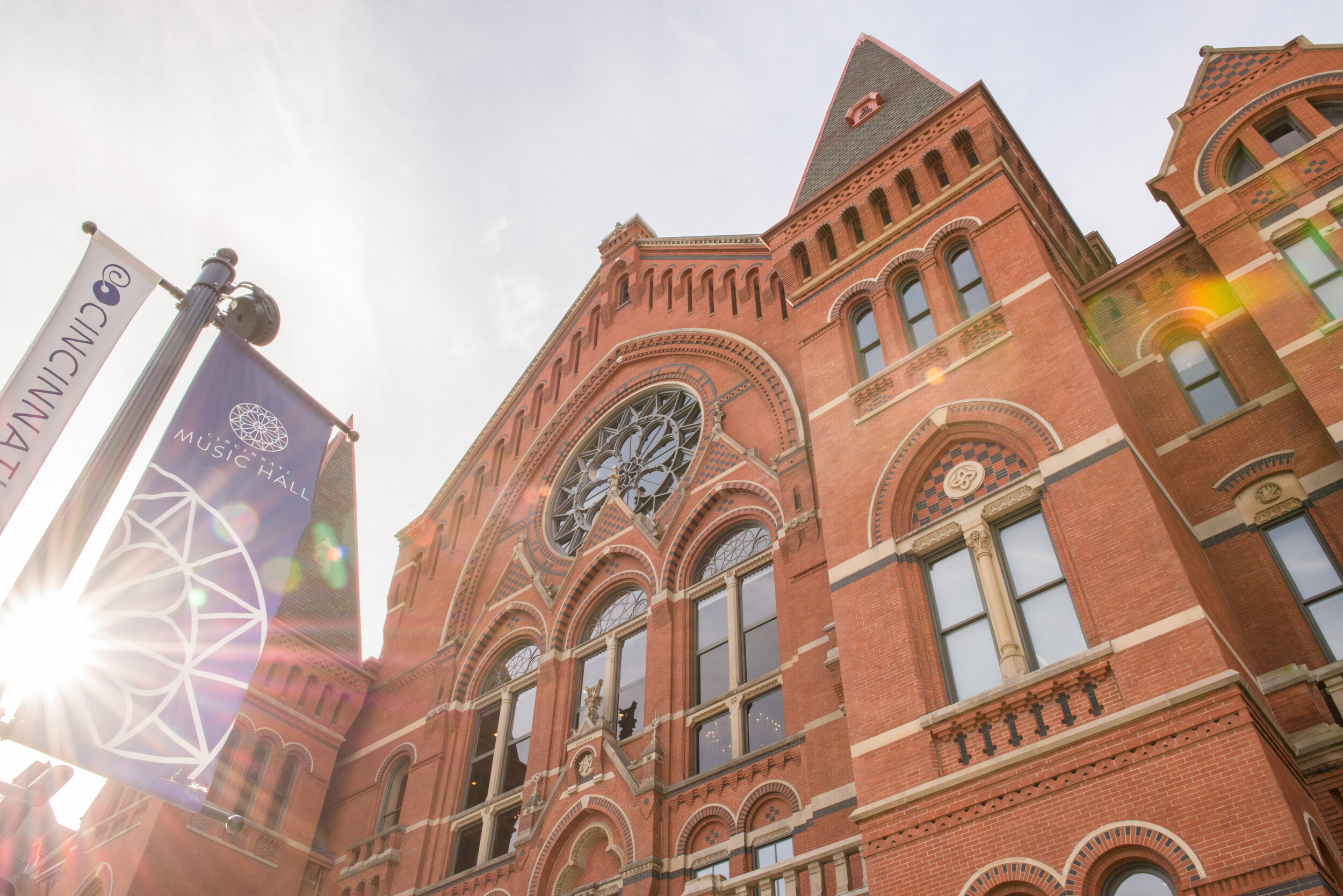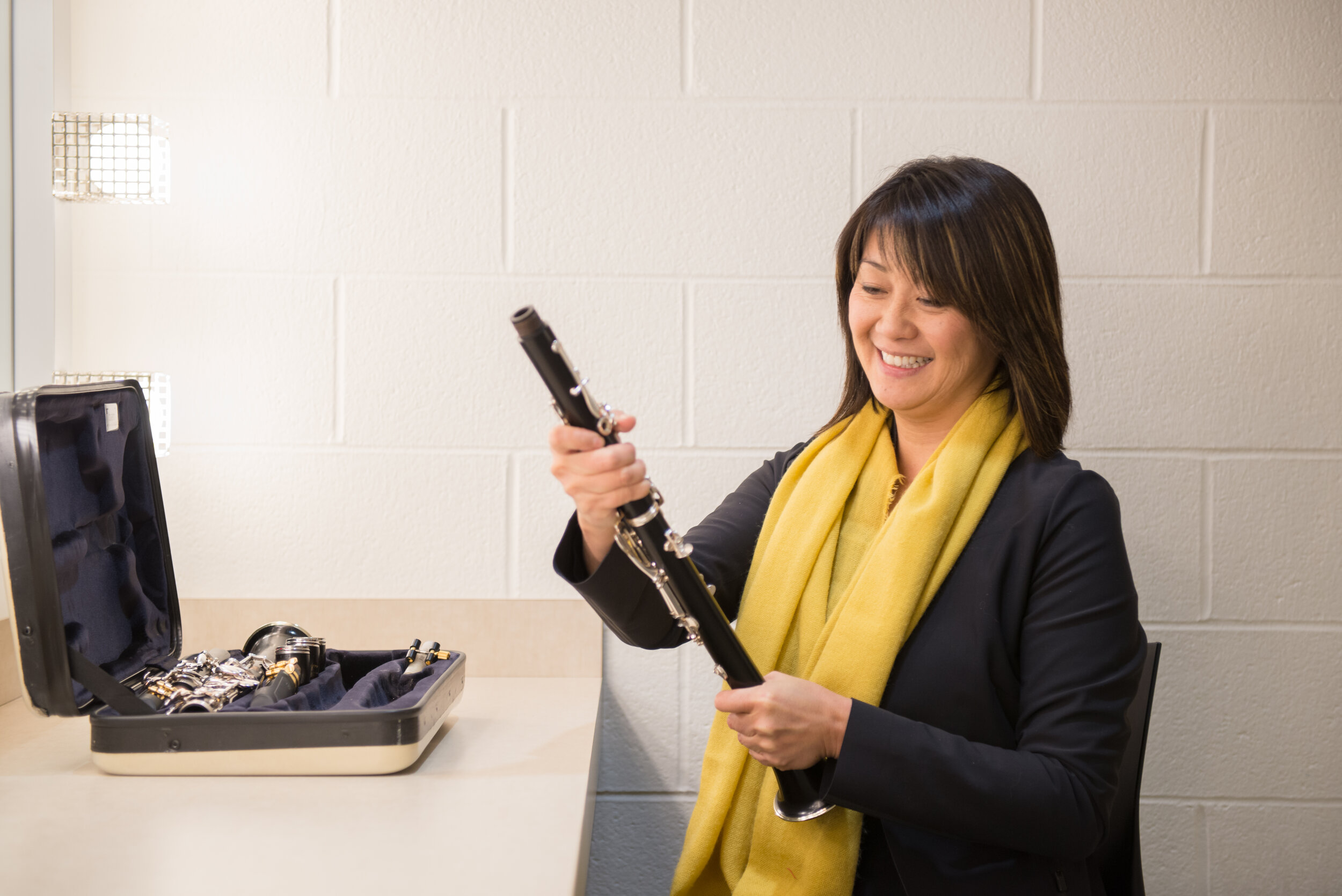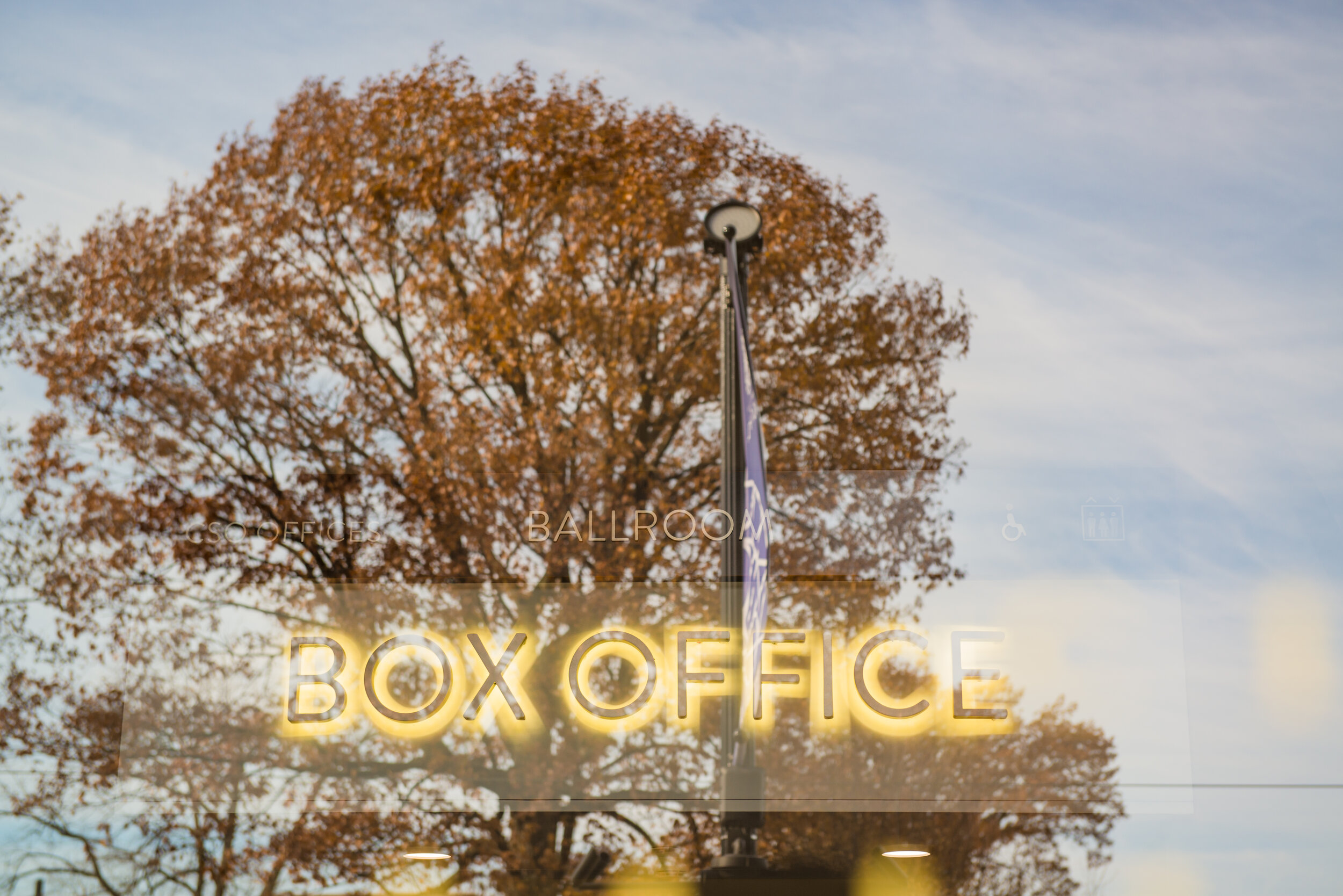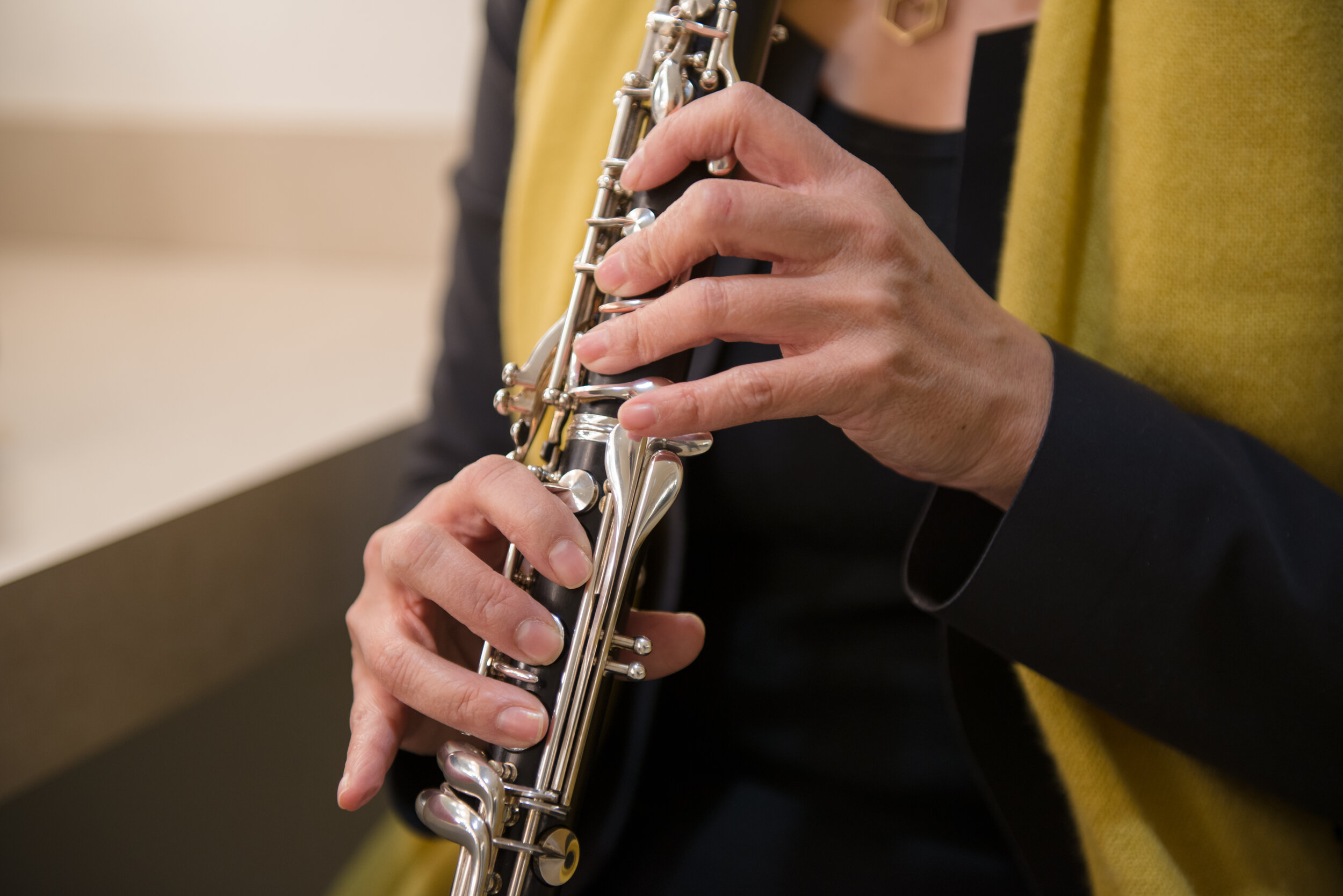The Cincinnati Symphony’s Ixi Chen: Creating Harmony from the Classroom to concert:nova
Ixi Chen is a musician with a mission. She asked us to meet her at Over-the-Rhine’s Union Hall. It was a late, gray afternoon, but the colors were bright in the co-working hub. Many in the neighborhood could be seen hustling home or heading to happy hour, but this space was still packed with professionals. Oh, the entrepreneurial spirit. It emanated from Ixi, too, and I understood why she’d asked us to chat there.
We settled into some couches and began to learn of Ixi’s love for guiding others to pursue their best selves. The clarinet connoisseur is a self-proclaimed “supporter” – this title suits her well. So off we went, jumping into her dedication to family, teaching, and concert:nova.
Interview by Sandra Okot-Kotber. Photography by Stacy Wegley.
Who is Ixi? How would you describe yourself?
I would say that I’m a supporter. First of all, I play second clarinet in the Cincinnati Symphony. That’s been my position since 2001. I never wanted to be the star and have all the solos and glory. I was much more interested in creating harmony, playing chamber music, helping other voices shine, and being the sideman, like in a band.
From day one, it was a lot of fun for me. I’ve had to get more comfortable with having my own solo voice because there is leadership involved in playing second. There is leadership in saying, “Well, I want to let this line shine through a little bit more; let’s give it some extra energy.” When you’re playing next to somebody, even though you have a conductor, you’re communicating with them very closely. I felt like I was able to provide the support and non-judgmental partnership as well as lead in my own way. It’s been so rewarding to have that.
Do you see that coming out in different aspects of your life, or is that trait solely present in your music?
For sure. I’ve always been a student of spirituality in many forms. Early on, it was organized religion, but I was like, “This is not for me.” My parents had a Christian background and a Buddhist background. The Buddhist side of it: I love the philosophy, but the ritual around it was a little intense. So I sought my own practice. When I moved to Cincinnati, I found this woman… Have you ever worked with an energy teacher?
No, but that’s interesting…
She was my energy teacher, and I started to think about how I could support young artists. I was asked to teach at C.C.M., and I wanted to offer them more than just technical expertise. At first, it was like, “We’re going to work on your articulation; we’re going to work on your technique; we’re going to work on your sound and how you’re producing it.” It’s all very technical, and it’s like, “Go to your practice room and practice.”
Gradually over the years, I wanted to offer more of a holistic approach to teaching, so creating this space for them was very similar to giving my partners in the orchestra a platform in which to be their soloistic selves. Rather than leading by example, per se, I’m more like, “Let’s work on it: What are the obstacles you’re putting up? What are the limitations and the beliefs that you are holding that are keeping you from doing what you want in music?” Very similarly, I’m passionate about allowing people to shine, and in the process, I feel like I’ve evolved, too – to a point where I’m much more comfortable in my own skin and much more comfortable with my own voice.
How did you choose the clarinet?
We often do these educational outreach concerts, and kids always want to know. Sometimes it just happens. I ended up hating my piano lessons. It was so lonely. I would just sit there and practice by myself, and you never really get to play with anyone else, so I said, “Mom, I want something else.”
A family friend said, “How about flute, oboe, or clarinet?”
I said, “Sure.”
I still remember trying it out in the back of our station wagon. I remember how it felt the first time I played. I remember little things about it that I shouldn’t have remembered. It was very natural for me. I played in the school band and got first chair and all sorts of things. It was just very easy, and I felt successful in it. Having been born in Taiwan, it was also a way to kind of fit in.
I had to make a decision going into college if it was something I would pursue as a career. At first, it wasn’t; it was architecture and microbiology and all sorts of things. Eventually, I said, “I’m going to New York, and I’m going to be a music major, and I’m going to try this out.”
I had gotten accepted at Juilliard and New England Conservatory, and I think my family was a little bit more… “So if you were accepted, then maybe you have a future, but don’t forget about your plan B.” That’s how clarinet came to be.
You’ve been all over the place: Taiwan, California, New York, and now, Cincinnati. How did you transition here, and why did you stay?
I grew up in California near San Francisco in South Bay. I went to U.C.L.A. for two years; I went to Manhattan School for two years; and came back to L.A. to U.S.C. for a semester before I moved to Germany for two years. I spent two years in Germany playing in an orchestra there and traveling, doing all sorts of young person things. I came back and finished my master’s at U.S.C., and that’s when I started taking auditions. There was a one-year position here in Cincinnati in 2001. I ended up taking that and then awaiting the national audition.
(As you might know, auditions are an art in itself, so a lot of the students who come and study at C.C.M. are also looking to take auditions. We spend a lot of time doing the “sports psychology” aspect of the mental preparation for auditions. I love that, too.)
Instead of just telling it from the traditional point of view, we could change it.
So, 2001, I landed in Cincinnati. All of my friends were like, “How’s Cleveland?” [Laughs.] It was right after the riots that I came. I loved the job. I didn’t care about the salary; I just loved the job. (It just so happens that it carries a pretty nice salary. I feel so lucky to be paid a full-time wage – essentially, I’m just blowing air into a piece of wood [laughs] – to create something.)
Cincinnati is such a great place to live. Having moved from a place where I was spending three or four hours on the highway every day, I felt like I had a second life here. I could get somewhere in 10 minutes. I could always find parking.
From that, I’ve always been very creative. I want to make things. I want to do stuff. So I enrolled in a darkroom class, and I took photography. I took people’s portraits for a while because I believed that everyone deserves a beautiful portrait of themselves. Then I started concert:nova, and that’s where my passion has been besides teaching: creating a vehicle of community building through chamber music. Do you know much about chamber music?
Not very much.
Chamber music is unlike orchestra in that there’s no conductor. It’s usually 2 to 15 players. We decide what to play; we decide how it’s going to be played; we talk to each other and say, “Hey, I’m really feeling it this way. Can we speed it up?” We get deeper into the music. We’re not told by a conductor what to do.
At first, it was just a fun, creative outlet that I wanted to put more into the path of the everyday. Because to ask my friends – all my friends work for P&G and Toyota and Amazon – they’re like, “Oh, you play in the symphony; that’s so cool!”
“Are you going to come?”
“Oh, no. No, that’s not for me. It feels like it’s too stiff, or it feels like I have to dress up or I have to understand the music. I just get too antsy; I can’t sit still long enough.”
“What if I did a concert at a restaurant?”
I asked this artist to come and paint what he saw, or this chef to create something around this theme of music, or a dancer would be like, “I want to do it this way because I really like this thread right here.” So I bounced ideas off of friends. It sort of started off that way. I just wanted my 20-something buddies to come and enjoy the music that I like.
So this was really birthed out of creating a different, unique type of experience for listening to music.
Especially when people are talking about how classical music is going to die, how something needs to be done. What’s the evolution of classical music? How is it shared? How is it consumed? Who wants to consume it and how? Is it in smaller snippets or...?
For example, we did this piece called “The History of the Soldier” [“L’Histoire du soldat”]. It was about a fiddler who was serving in a war, and he came home. In the original story, he came home to his love, a princess who had no speaking role. We had someone rewrite the script for her to tell the story of seeing her man come home and sell his soul to the devil. He [died by] suicide. It was a post-traumatic story, and she got to tell it. I love that – where this actor and our musicians came together and reimagined what a story could be. Instead of just telling it from the traditional point of view, we could change it.
Typically, how do your collaborations come together?
We used to do five a year; now, we have 10 or 15 a year. I involve the younger artists. It usually starts with, “Wouldn’t be fun if…?” Like my husband – who’s also now more and more involved – he loves coffee. I bought him a Christmas present… Have you heard of Blue Bottle from San Francisco? [They] came out with a book about how they started. I was reading through it, and in the intro, he talked about being a clarinet player – he’d studied with the same teacher I had in California. It was like, “We should invite him to come out and we can do a coffee concert!”
We started researching. We already knew about this Coffee Cantata that J.S. Bach wrote. “So, let’s present the Coffee Cantata, and we’ll ask Deeper Roots to do a coffee tasting and talk about brewing methods.” Then we found out that Beethoven would count his beans, and he was a coffee fanatic, so we told stories around classical music and coffee. We had it in the morning so people could drink coffee to their heart’s content.
What’s next for you? What is your goal for say, the next 10 years?
I want to run a retreat center. That’s my ultimate dream, and I want to start it before I retire from the orchestra. (Yes, I am thinking already about retiring. [Laughs.] Twenty-five years away, but I’m still thinking about it.)
In order to move there, I have a few other projects I feel could help me make that transition. One is building a supportive network for women musicians – people who are not necessarily at ease with themselves yet or feel like they have found a comfortable way to be on stage. That’s something I struggled with in the beginning – even introducing myself. It’s taken me a long time to feel like I’m comfortable saying my name – “Here I am; this is what I do” – and it’s only recently that I felt okay to stand up and talk or stand up and take a solo.
But there’s a place for everybody, a path, a way to listen to your own heart and clear out all the other voices that are in your head.
I want to help other people do that. I’m looking to the digital world. A lot of young instrumentalists come to me and say, “I want to be the next big clarinet soloist; I want to play the Chicago Symphony; I want to play the New York Phil.”
I’m like, “Okay, so you’re a freshman in college; let’s talk about this. This is what you have to do. What do you feel like your weaknesses are?”
I’m looking to develop digital courses so people who can’t afford lessons or who live too far away from a major city can have these resources at very low cost and they can play the lessons over and over and get a good foundation. Later on, they can feel a little bit more equipped to make a choice that “I’m going to be a professional musician.”
Or it could be a digital course on “here’s how you apply to get into music school”; “crush your music school audition,” or “here’s how you overcome stage fright.” You can show your potential to whoever you’re interviewing for. I think it’s going to be in the realm of women, young kids who want to do clarinet, and young artists who are just starting out.
What inspired you to target those types of artists?
Well, when I was in school I had my good friends who were girls in the studio. [The men] were always comfortable talking about how good they were. We were always sort of like, “Um, I’m not so sure that I’m gonna be able to win that audition.” We would talk about our plan Bs. The guys would talk about when they’d get their job.
What does an average day look like in the life of Ixi?
I wish I could say that I have a ritual in the morning, but it takes me a while to wake up. I’ll take some deep breaths and stretch, then wake up my son and get him dressed. Now we’re fighting about clothes. He’s 8 [laughs]. How many ways can I say no? My husband is always making me coffee. He likes to make breakfast, too.
I usually jump on the computer, look through my day, send some emails off, and go to work to warm up and have rehearsal. Then at lunch I’m doing emails. I love not being connected on the job. Our job is so 100% analog. When I jump back on, I feel refreshed. I try not to do too much on screens, especially before a performance, because it somehow really knocks you off your zone. It’s totally a different brain. To get into performance mode, you have to turn off the intellectualization or the verbalization of any type of commands. You can’t be like, “Okay, gotta get that E flat” – you’ve just got to feel it. You have to stop thinking. If I go on screens during intermission, I’m gone. It’s hard to get back.
I do get a lot of great ideas for courses or concert:nova during rehearsals because there’s just a lot of space. I call it “getting in the gap.” When I’m driving to work, it’s just quiet and there’s nothing going on and in that period, that gap of time, ideas can flow. I love those gap moments. I try to build those in my day.
After rehearsal, I go to C.C.M. to teach or hear a recital and then I come home and make dinner. I’m a soccer mom, Cub Scouts mom. I try to have blocks of time where I can dedicate but often it looks like, “Okay, let’s watch a movie and mom is on her laptop.”
I try not to do that, but it’s hard. The kids are like, “You’re always on your phone!”
How many kids do you have?
I have two stepsons and my biological son. So 8, 12, and 14. They’re all doing two music activities. They’re all gifted.
Can you tell us about your favorite performance?
Oh, man, so hard. We did play for a king and queen of Jordan in Cairo. That was pretty memorable. We did the Midsummer Night Festival in St. Petersburg. It was really beautiful. I would say all of the different backdrops of the stages have been incredible. Sitting in Munich opera pit, or in the Berlin Konzerthaus or the opera theatre in Vienna, just seeing all these gorgeous, lush backgrounds…
We played in a cave once. We played in a stock exchange once. So just having this constant scenery against which we make music… If I had to pick one here in Cincinnati, it was probably when Valery Gergiev came and led us in Petrouchka in one rehearsal. He’s a genius. He could look at you and you’d know exactly how to play.
What do you want to be remembered for? What sort of legacy do you want to leave behind?
I would love to be able to teach by being who I am, rather than teaching. You know what I mean? I would love to teach people how to be comfortable and believe in themselves. Maybe to grow a new generation of people who can be supportive of other people.
Who are some influential women in your life?
A woman named Michele Zukovsky who played in the L.A. Phil when I was in school there. It was always clarinet women! This German woman, Sabine Meyer, who I grew up listening to. Just such a lush, beautiful sound. I wanted to be just like her.
Now, I have a bunch of coaches that I love that I want to be like. Doing the quiet work of helping, you realize and shift your mindset to a place that allows you to really do incredible things.
My mother died months after I moved here, so she never was able to visit. When I took my audition here for the permanent job after the one-year position, she gave me these manifestation tapes to listen to. There was this Wayne Dyer tape. I was like, “What’s that? Mom, it’s this bald guy standing in front of a sunset. Come on.” But I put it in and that was sort of my introduction to this world of possibility and that you have the power to manifest your wildest dreams. She was the one who sort of introduced that.
She was the one who instilled the Buddhist philosophy in me. She was the one who taught me how to die gracefully and love every moment of being alive. Maybe she was my biggest influence. She continues to inspire all of us.
Spiritually speaking, after she died, I would always feel drawn to wise women. Somehow I was introduced to an energy teacher named Jeanne Kabenji. She was able to help me sort out difficult situations in my life and gain clarity on my path. All these healers and coaches started coming out of the woodwork. I have one for finances. She was a high-level finance person in New York City. When was she passed over for a promotion over someone else she outperformed consistently, she moved to India and studied chakras and studied mudras and came back and developed a system around chakras where you hold certain financial beliefs, like, “Your heart is your savings.” She’s helping me figure out the next step in my financial life.
There’s a whole new trend of spiritual entrepreneurship, and even the person I saw for ayurvedic healing… I just wanted something for my gut. I felt like my digestion wasn’t right. She and I worked together and did some cleanses. She’s also helping people create spiritual entrepreneurship businesses. There was a lot of support out there in a time when I felt really alone. A lot of people showed up – those mother spirits. I’m hoping I can be that.
There’s definitely a theme for you: creating spaces for people to come together, whether it’s been around the music or learning or your future dreams. Where does that come from for you, as a convener?
Maybe from not feeling like I belonged anywhere. It was hard to fit in. My parents were very traditional. But there’s a place for everybody, a path, a way to listen to your own heart and clear out all the other voices that are in your head. It’s confusing: You want to just be comfortable in the same place even if it’s not a good place to be in; it’s comfortable and you’re used to that, so you don’t evolve. I think helping people evolve in a safe way is good.
Sometimes it doesn’t feel safe. I have one student who’s resisting. Her father was abusive, so she hears his voice a lot: “What are you doing in music?”
[But then] she made a mistake and she laughed at herself! I was like, “Did you notice that you’re laughing at yourself?”
Then she sort of put up a wall for a while, and then another breakthrough came. It’s hard to see someone retreat back into their place of comfort and not want to continue this work. It’s hard. I want to be able to be there for them when they’re ready to continue the work.
Do you know an awesome woman of Cincy? Nominate her here! New features launch every Monday.









